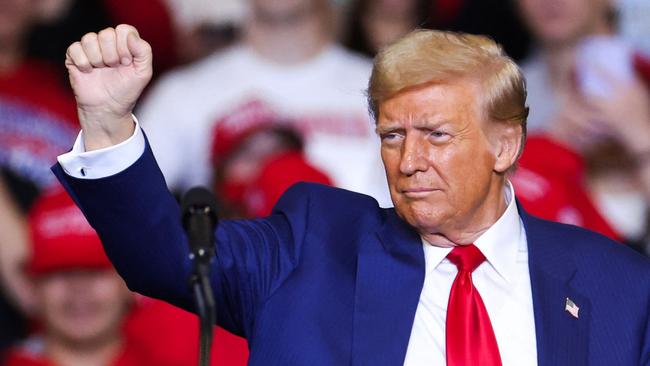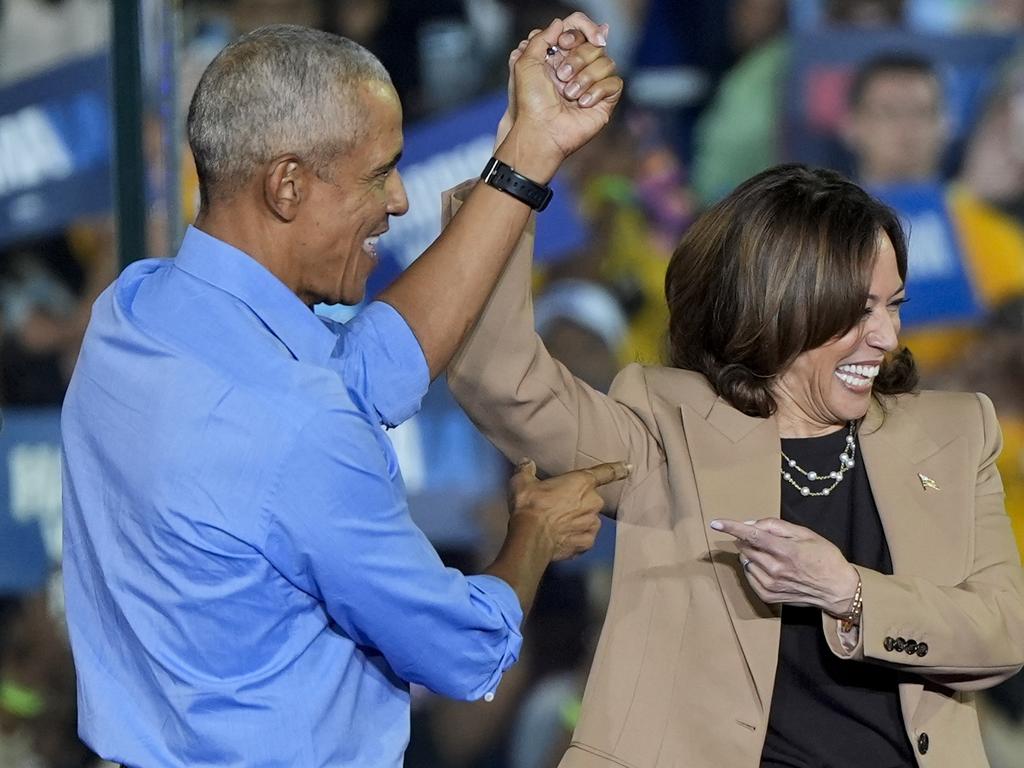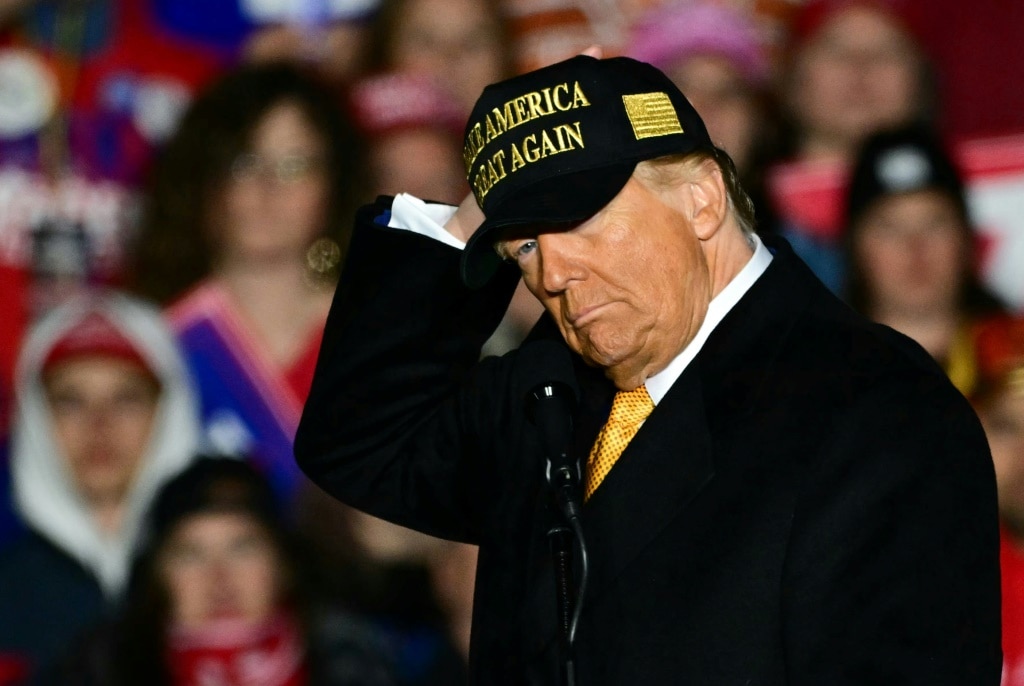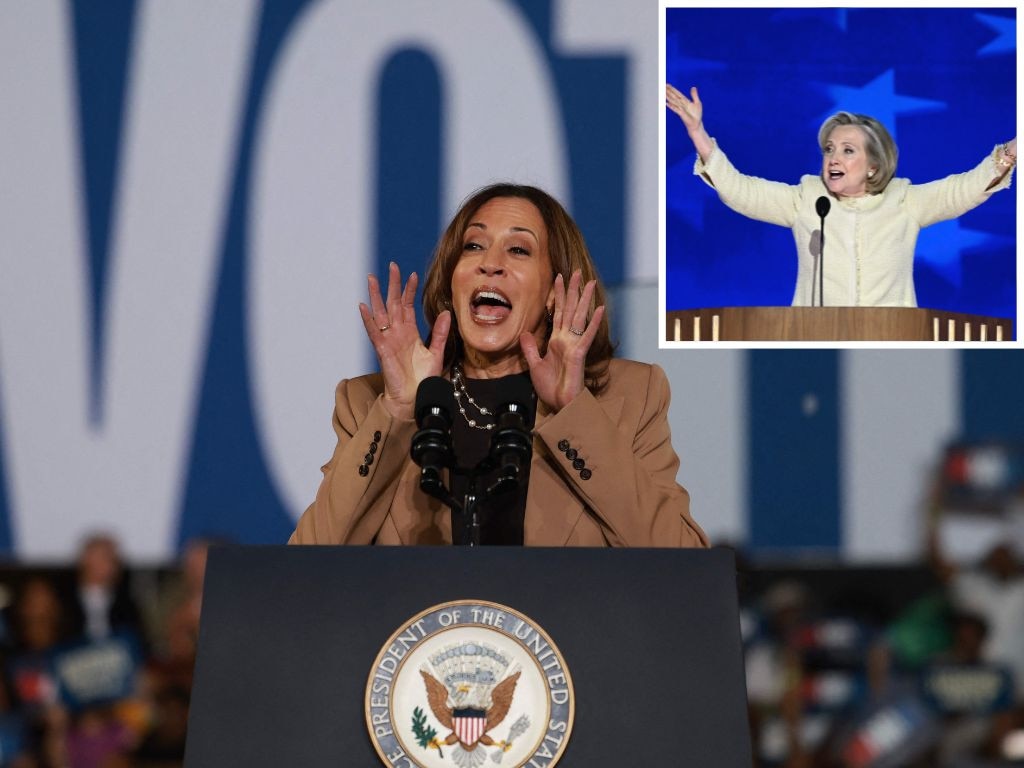
This is surely the most astonishing state of the polls in all American history, given that his opponents, including Vice-President Kamala Harris and the whole Democrat politics/media/entertainment/academic complex routinely compare him with Adolf Hitler, given that he is being massively out-spent in the campaign, that he has been (absurdly) convicted of 34 felonies and that there have been two domestic assassination attempts against him, and another Iranian plot to kill him uncovered by US intelligence.
Even when he won the presidency in 2016, Trump lost the popular vote by miles.
But the authoritative realclearpolitics average of polls has him ahead by a sliver, 48.4 per cent to 48.3. At this stage four years ago, the same polls had Joe Biden up nearly 8 per cent. At this stage in 2016, Hillary Clinton was ahead by 5.4 per cent. Trump is also ahead, narrowly but clearly, in every one of the seven battleground states.
If these polls are borne out, Trump wins the election.

It should be noted that some poll aggregators still put Harris just ahead, with a tiny and narrowing margin. The latest New York Times/Sienna poll has Trump and Harris equal at 48 per cent. However, when minor-party candidates are included, it too has Trump ahead, in this case by 1 per cent. Jill Stein, the leader of the Greens Party, is polling between 1 and 2 per cent nationally. She takes votes almost entirely from the Democrats. In 2016 her vote tally in Michigan and Wisconsin was larger than Clinton’s losing margin. Stein probably cost Clinton the presidency.
Michigan has hundreds of thousands of Arab Americans who think Biden and Harris have been too pro-Israel. Many are backing Stein. If Stein gets 2 per cent in Michigan it’s very hard for Harris to win there. If Harris loses Michigan she almost certainly loses the presidency.
It would be good for America if the winning candidate wins the trifecta – a clear win in the popular vote, a clear win in the Electoral College and a clear win in the battleground states, making the new president’s electoral legitimacy harder to challenge.
In the past two presidential elections the polls badly underestimated Trump, mainly because they polled too few of the sorts of people who don’t generally vote, or answer surveys, but who do come out for Trump. All the polls have made huge efforts to correct that bias, mainly by weighting the previously under-represented demographics, so it’s at least possible that this time the polls are underestimating Harris.
There was never anything undemocratic in Trump losing the popular vote but winning the electoral college. But during this cycle, Trump has gained support in California and New York, which Harris will still win easily, and in Florida, where Trump will win easily. That means the popular vote is equalising, but this doesn’t affect the electoral college.
A lot of the new votes Trump is attracting are among Hispanics. That helps him in states such as Arizona and Nevada, but it doesn’t do much for him in the critical Rust Belt states, Wisconsin, Michigan and Pennsylvania.
The polls as they stand give a real chance that Trump could convincingly win the popular vote and the presidency. It would then surely be impossible for Democrats and their allies, who have spent billions of dollars and endless effort demonising Trump, to claim he is an illegitimate president. It may even be that they would have been better off concentrating on issues that mattered to voters
Of course, Trump certainly does not have this won yet. A lot of his new support is among young single men, especially Hispanics and blacks. But young single men, of all races, are the most unreliable of voters. The slightest distraction and they don’t turn out on election day.
Secondly, Harris clearly has the better ground game. Her campaign has hundreds of millions of dollars more than Trump’s campaign to hire “volunteers” to transport voters to polling booths, and to remind, persuade and motivate them on election dayPolls try to measure the intentions of likely voters, but it’s very hard for polls to anticipate the effects of the candidates’ respective ground games.
It’s even remotely possible that Trump could actually win the popular vote but lose in the Electoral College, for if results are very close in battleground states they could by definition go either way.
And if polls are for some reason under estimating Harris, even by 1 per cent, she wins.
The Democrats pursued their preposterous and systemically damaging court cases against Trump to ensure he remained the centre of attention and won the Republican nomination, thinking he’d be easy to beat in the election. The politicised court cases were to serve two political purposes – get Trump the nomination and lose him the election.
Meanwhile, the Democrats avoided a genuine democratic primary process in their own party, which would have stripped the Democrat bosses of power and surely yielded a better candidate than Harris. There’s every chance the Democrats have outsmarted themselves.







The American election has hit a stupendous turning point: Donald Trump is now ahead in the polls for the national popular vote.